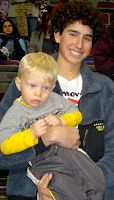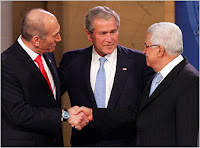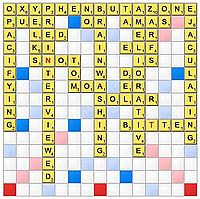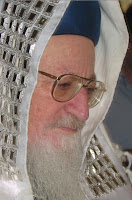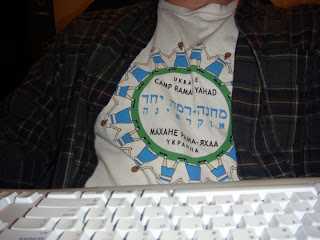The United Synagogue of Conservative Judaism Bienniel Convention commenced yesterday in Orlando and as the Forward pointed out, the Conservative Movement faces new realities.
The Conservative movement has struggled in recent years to maintain a sense of identity without abandoning its “big tent” philosophy and to boost its sagging membership. This turmoil has been exacerbated in the past year by the movement’s change in policy toward gays and lesbians – and by a change in the leadership at the Conservative-affiliated Jewish Theological Seminary, which brought in a new chancellor, Arnold Eisen.
Everyone seems to be talking these days about the poor state of Conservative Judaism with the movement’s decreasing membership numbers and some Conservative synagogues being forced to merge or close up completely. Personally, I see much excitement on the horizon for Conservative Judaism and something that resembles the renaissance that changed and strengthened the Jewish campus organization Hillel a decade ago.
At the end of the summer, The Forward published an article titled “Conservative Judaism at a Crossroads”. The article, published the week before Prof. Arnie Eisen was officially installed as the new chancellor of the Jewish Theological Seminary, quoted prominent Conservative Jewish leaders and some outside observers who weighed in on the future of the Conservative Movement.
Conservative rabbis including David Wolpe, Alan Silverstein, Naomi Levy, and Harold Kushner each gave their recommendations for the Conservative Movement’s recovery from what the former chancellor of JTS, Rabbi Ismar Schorsch, referred to in his 2006 commencement address as suffering from “malaise” and a “grievous failure of nerve”. Other respondents included Scott Shay (author of “Getting Our Groove Back: How to Energize American Jewry”), Douglas Rushkoff (author of “Nothing Sacred: The Case for Open Source Judaism”), and Jay Michaelson (Zeek.com).
These short summaries of the current state of Conservative Judaism and what can be done for the future serve as good food-for-thought for movement leaders. Chancellor Arnie Eisen’s power-packed stump speeches that he’s been delivering across the country for over a year have also infused Conservative Judaism’s laity and leadership with newfound exhilaration and hope for the future. Top leadership changes will also force the movement on a new course for the future. Rabbi Jerry Epstein (Executive VP of United Synagogue) and Rabbi Joel Meyers (Executive VP of the Rabbinical Assembly) have both announced their retirements will take place in 2009. In addition to those two expected changes and the new JTS chancellor, there is a new dean of the JTS Rabbinical School (Rabbi Danny Nevins) and there will be a new dean of the William Davidson School of Education at the Seminary next year to replace departing dean Rabbi Steve Brown. [update: Prof. Barry Holtz replaced Prof. Steve Brown as Dean of the Davidson School in 2008]
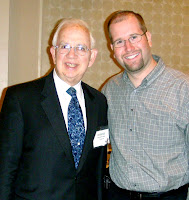 The best, most concise vision for the future of Conservative Judaism is presented by Rabbi Harold Kushner (at right with me at the 2007 Rabbinical Assembly Convention) in his article that appears in the current issue of Conservative Judaism. Rabbi Kushner’s article should be required reading for every Conservative Jew. Reading it I was reminded of Rabbi Neil Gillman’s assertion that the Conservative Judaism treatise Emet Ve’Emunah is not a pareve (neutral) document, but rather is full of blockbuster statements. Rabbi Kushner’s article, “Conservative Judaism in an Age of Democracy” is likewise full of blockbusters.
The best, most concise vision for the future of Conservative Judaism is presented by Rabbi Harold Kushner (at right with me at the 2007 Rabbinical Assembly Convention) in his article that appears in the current issue of Conservative Judaism. Rabbi Kushner’s article should be required reading for every Conservative Jew. Reading it I was reminded of Rabbi Neil Gillman’s assertion that the Conservative Judaism treatise Emet Ve’Emunah is not a pareve (neutral) document, but rather is full of blockbuster statements. Rabbi Kushner’s article, “Conservative Judaism in an Age of Democracy” is likewise full of blockbusters.
Rabbi Kushner writes, “In the absence of an enforcement mechanism, halakhic Judaism is no longer viable. To the commanding voice of halakhah, ‘You shall do the following,’ the modern non-Orthodox Jew responds, ‘Why should I?’ He need not be saying it dismissively. He may simply be asking for a persuasive reason, but the dimension of recognized obligation is no longer there.”
Referring to Rabbi Hayim Herring’s brilliant article “The Commanding Community and the Sovereign Self,” Rabbi Kushner comments, “The end of the halakhic age for the vast majority of Conservative Jews may not be such a bad thing.”
On the subject of Conservative Judaism not being able to effectively market its product or tweak its product to ensure success, Rabbi Kushner quotes Gil Mann who makes the following comparison: “If Procter and Gamble find that one of their household products is not selling well, they don’t take out full-page ads chastising their customers for being too lazy of disloyal to do the right thing and buy what they are selling. They take out ads emphasizing the benefits of using their product, and if necessary tweak the product to make sure it lives up to their claims.”
On halakhic changes that the movement has made, Rabbi Kushner writes, “We permitted driving to synagogue on the Sabbath, countenanced eating dairy foods in non-kosher restaurants and welcomed women as shelihot tzibur. None of those decisions can be justified by Orthodox halakhic criteria, but there would not be a Conservative movement today without them… When our movement was at its most creative and most relevant, our appeal was not to halakhah but to history, to the argument that the forms in which Jews lived their Jewishness had always changed as circumstances changed.”
Rabbi Kushner clarifies his understanding of mitzvah, stating that in “in the 21st century, [mitzvah] can no longer mean ‘commandment, obligation.’ I would prefer not to translate the word mitzvah at all, but I would understand it to mean ‘opportunity,’ the opportunity to be in touch with God by transforming the ordinary into the sacred.”
Conservative Judaism’s numbers may continue to decline, but that is not a fair assessment of the state of this movement. There is much promise for Conservative Judaism in the coming decades of the 21st century. Excitement and success are sure to follow Arnie Eisen’s vision, the emergence of new leadership, the rethinking of how to handle intermarriage and GLBT inclusion in Conservative synagogues, a new Ramah camp in the Rocky Mountains, and new grassroots projects (Elie Kaunfer’s Mechon Hadar, Menachem Creditor’s Shefa Network, etc.). The new rabbinical school curriculum at the American Jewish University and the expected new curriculum for the JTS rabbinical school will also have positive effects on the future of the Conservative Movement.
Rabbi Harold Kushner concludes his article as follows:
Our movement, our generation is called on to do what Rabbi Yohanan ben Zakkai and his colleagues did two thousand years ago, to reinvent Judaism in a way that will meet the needs of people today to fulfill their human destiny and make God a constant presence in their lives in an age when the currency of Jewish loyalty and faith will no longer be obedience but the pursuit of holiness.
May Conservative Judaism realize a revitalization and bring its adherents of all ages and all levels of observance closer to God and Torah. Ken Yehi Ratzon.
